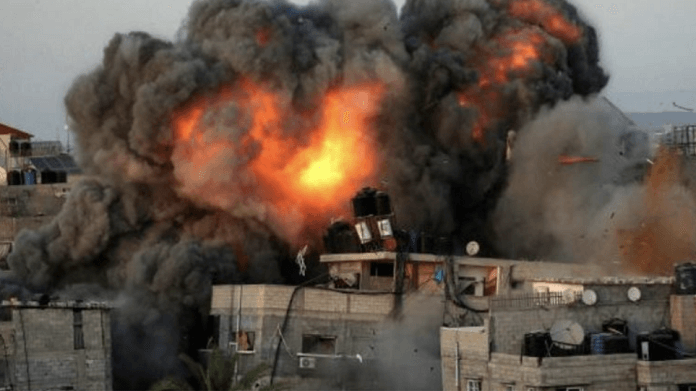The conflict in the Middle East ended in a truce. But who are really the winners and who are the losers?
With the ceasefire agreement after eleven days of fighting in the Gaza Strip – and despite Friday’s clashes in Jerusalem – both sides claimed to have won: on the one hand the Israelis the military operation “Guardians of the Wall” and on the other another is the Islamist Hamas operation ” Sword of Jerusalem “.
According to German professor Eckard Wertz , head of the Hamburg Institute for International and Regional Studies (GIGA), “the real winners of the conflict are Benjamin Netanyahu and Hamas.” According to the German professor, the military operations have turned their attention away from the impossibility of forming a government in Israel after four electoral contests in the last two years. On the other hand, Wert estimates, Hamas has managed to become a guardian of Palestinian interests even in the West Bank, where Palestinian President Mahmoud Abbas rules, gaining a lead in intra-Palestinian disputes.
Mahmoud Abbas is weakening
In fact, the fact that international actors have begun to consider direct or indirect negotiations with Hamas, which is considered a terrorist organization by the United States, the European Union and some Arab countries, is something that may upset Abbas. Even Chancellor Angela Merkel, after Thursday’s truce, said it was necessary to maintain indirect contact with Hamas. What is not in doubt is that Mahmoud Abbas, who has postponed the Palestinian elections scheduled for April – the first in 15 years – is coming out weaker than this conflict.
The Arab media, as well as the Israeli press, describe Abbas as a “big loser”. They observe that both internationally and among the Palestinians, Hamas is now attracting interest, while Abbas is no longer presented as a “player” in the Israeli-Palestinian conflict. According to Sarah Foyer, a researcher at the Israel Institute for National Security Studies, the current situation is reminiscent of the situation in Lebanon in 2006. “And then the first feeling of the Israelis was that it was not a victory over Hezbollah. Fifteen years later, Israel’s policy of deterrence remains the same. At best, something similar will happen with Gaza. “
The common people are defeated on both sides
Meanwhile, the UN Office for the Coordination of Humanitarian Affairs (UNCHA) is sounding the alarm about the situation in the Gaza Strip, which it describes as extremely difficult, with more than 71,000 internally displaced. The death toll in Gaza stands at 243 (Friday) and in Israel at 13. “The losers are the civilians on both sides,” Professor Eckard Bertz told DW. In fact, the situation inside Israel has worsened in recent days, reaching the brink of civil war between Israeli Jews and Israeli Arabs.
At the geopolitical level, however, neighboring Egypt also seems to have won, which the US may see with a different eye as a regional player in the Middle East. According to Yasser Al Hudaybi, vice president of the liberal Al Wafd party and professor of constitutional law, Egypt is being confirmed as a model for the way the Palestinian government is managed. At the regional level, on the other hand, it remains to be seen whether Israel’s “new” allies from the Arab world will maintain diplomatic and economic relations with it. “Despite the recent Abraham Accords, it is rather unrealistic to assume that Arab-Israeli relations can deepen further without first resolving the Palestinian issue,” Wertz said.
Finally, at the international level, the recent escalation of violence has revived the debate on a two-state solution to the Palestinian issue. Just minutes after the ceasefire, US President Joe Biden wrote on twitter: “I believe that the Palestinians and the “Israelis equally deserve to live in security and enjoy freedom, prosperity and democracy.” Biden also promised that his government would continue its diplomatic efforts in this direction.



